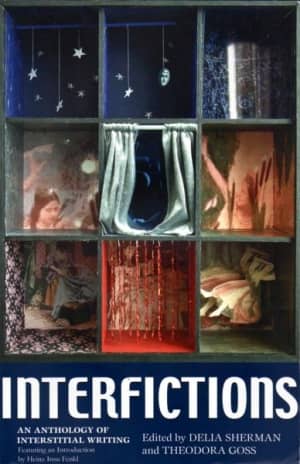Birthday Reviews: Rachel Pollack’s “Burning Beard: The Dreams and Visions of Joseph Ben Jacob, Lord Viceroy of Egypt”

Rachel Pollack was born on August 17, 1945.
Pollack won the Arthur C. Clarke Award in 1989 for the novel Unquenchable Fire and the World Fantasy Award in 1997 for the novel Godmother Night. She was also nominated for the Nebula Award in 1994 for Temporary Agency, which was also nominated for the James Tiptree Jr. Memorial Award and the Mythopoeic Award. Godmother Night received additional nominations for the James Tiptree Jr. Memorial Award and the Lambda Award. Her story “The Beatrix Gates” was nominated for the Gaylactic Spectrum Award. In addition to science fiction, Pollack has written for comics and Tarot, including the creation of her own Tarot Deck and books about reading Tarot and Dali’s Tarot deck.
“Burning Beard: The Dreams and Visions of Joseph Ben Jacob, Lord Viceroy of Egypt People of the Book” was first published in Interfictions: An Anthology of Interstitial Writing, edited by Delia Sherman and Theodora Goss in 2007. Three years later, Rachel Swirsky and Sean Wallace included the story in People of the Book: A Decade of Jewish Science Fiction and Fantasy. It was reprinted a second time by John Joseph Adams in the May 2014 issue of Lightspeed.
Pollack retells the story of Joseph from Genesis from Joseph’s point of view, with additional depictions of the events surrounding Moses’ story from Exodus in “Burning Beard: The Dreams and Visions of Joseph Ben Jacob, Lord Viceroy of Egypt People of the Book.”
Joseph is shown to be somewhat insufferable, giving an understanding of why his brothers would choose to throw him into a pit and sell him into slavery. At the same time, Joseph is well aware that his prophecies are going to come true, whether people believe them or not and whether he wants them to or not. What makes this even more poignant is that he sees the destruction Moses will level on Egypt and Joseph not only feels responsible for it, but sees both the Hebrews and the Egyptian as his people.
The story shifts between times, covering Joseph’s life from his childhood when he doesn’t understand his gifts through his fall and rise in Egypt and finally his death, although one of the interesting aspects of Joseph’s prophecy is that he gets his visions from a future Moses (and occasionally Aaron or Miriam). He develops a sort of one-sided relationship with his brother’s three descendants, determining that he does not like Moses for a variety of reasons, even before he sees what Moses does in his efforts to free the Hebrews, although the prophecies have a strange tendency to focus on the attempts to release the Hebrews form Egypt while glossing over their servitude to the Pharaoh.
The story is a strong retelling of a Biblical tale and does so without looking at the ethical aspect of the story, but rather with a focus on the difficulties any seer would have. A particularly clever sequence is when Joseph brings his dreams to other seers for interpretations. While the use of Joseph’s story makes it more relatable for many, it could also have been told from the points of view of the Greek Cassandra or one of the oracles of Delphi.
Reprint reviewed in the anthology People of the Book: A Decade of Jewish Science Fiction and Fantasy, edited by Rachel Swirsky and Sean Wallace, Prime Books, 2010.
 Steven H Silver is a sixteen-time Hugo Award nominee and was the publisher of the Hugo-nominated fanzine Argentus as well as the editor and publisher of ISFiC Press for 8 years. He has also edited books for DAW and NESFA Press. He began publishing short fiction in 2008 and his most recently published story is “Doing Business at Hodputt’s Emporium” in Galaxy’s Edge. Steven has chaired the first Midwest Construction, Windycon three times, and the SFWA Nebula Conference 6 times, as well as serving as the Event Coordinator for SFWA. He was programming chair for Chicon 2000 and Vice Chair of Chicon 7. He has been the news editor for SF Site since 2002.
Steven H Silver is a sixteen-time Hugo Award nominee and was the publisher of the Hugo-nominated fanzine Argentus as well as the editor and publisher of ISFiC Press for 8 years. He has also edited books for DAW and NESFA Press. He began publishing short fiction in 2008 and his most recently published story is “Doing Business at Hodputt’s Emporium” in Galaxy’s Edge. Steven has chaired the first Midwest Construction, Windycon three times, and the SFWA Nebula Conference 6 times, as well as serving as the Event Coordinator for SFWA. He was programming chair for Chicon 2000 and Vice Chair of Chicon 7. He has been the news editor for SF Site since 2002.